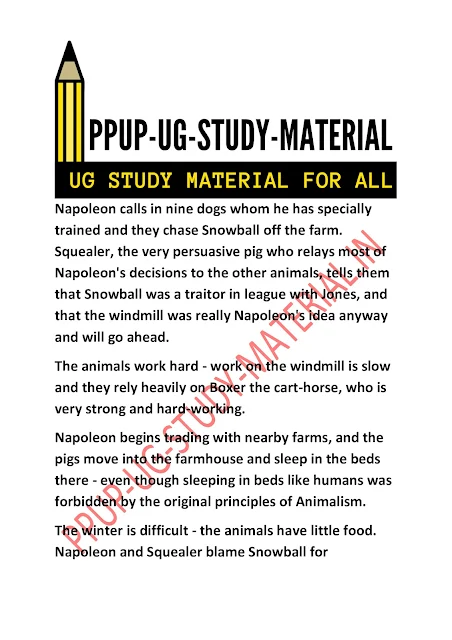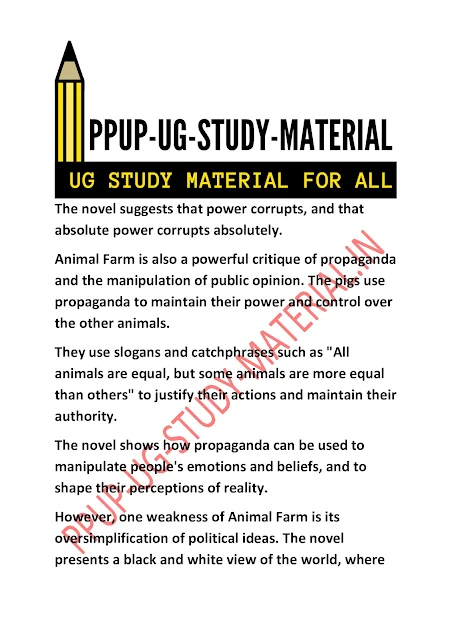Write a Note on Animal Farm: G. Orwell - ppup part 2 english composition 50 + notes pdf
[ Write a Note on Animal Farm: G. Orwell - ppup part 2 english composition 50 + notes pdf ]
In this BlogPost we'll cover These Topics - ppup part 2 english composition 50 + notes pdf, PPUP part 2 english honours ug study material download, PPUP part 2 english honours ug study material free, PPUP part 2 english honours ug study material online, PPUP part 2 english honours ug study material pdf, PPUP part 2 english honours ug study material quora, patliputra university guess paper 2024 pdf, Animal Farm Summary PDF, Animal Farm short Summary, summary of animal farm chapter 1-10 pdf, Animal Farm themes, What is Animal Farm based on, Why did George Orwell write Animal Farm, Animal Farm full book, Animal Farm characters represent, summary of animal farm chapter 1-10 pdf, Animal Farm Summary PDF, Animal Farm short Summary, Animal Farm PDF Chapter 1, Animal Farm summary and analysis, Animal Farm summary essay, Animal Farm Summary PDF grade 12, Animal Farm Characters PDF
Introduction to Write a Note on Animal Farm: G. Orwell - ppup part 2 english composition 50 + notes pdf
About the author of Animal Farm : G. Orwell - ppup part 2 english composition 50 + notes pdf
G. Orwell : Animal Farm Summary PDF grade 12 - ppup part 2 english composition 50 + notes pdf
G. Orwell : Animal Farm Characters PDF - ppup part 2 english composition 50 + notes pdf
G. Orwell : Animal Farm themes - ppup part 2 english composition 50 + notes pdf
Critical analysis of Animal Farm : G. Orwell - ppup part 2 english composition 50 + notes pdf
Character Sketch of Mr. Jones from Animal Farm - ppup part 2 english composition 50 + notes pdf
Character Sketch of Old Major from Animal Farm : G. Orwell - ppup part 2 english composition 50 + notes pdf
Character Sketch of Boxer from Animal Farm : G. Orwell - ppup part 2 english composition 50 + notes pdf
Character Sketch of Clover from Animal Farm : G. Orwell
Character Sketch of Benjamin from Animal Farm
Character Sketch of Snowball from Animal Farm
Character Sketch of Napoleon from Animal Farm
Character Sketch of Squealer from Animal Farm
Conclusion for Write a Note on Animal Farm: G. Orwell
I hope You got what you were looking for ..reading this post Write a Note on Animal Farm: G. Orwell - ppup part 2 english composition 50 + notes pdf ... and if you got any query ..you can comment below so we can provide you further assistance.










































No comments